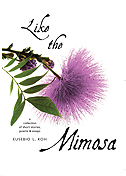 |
I’ve been writing this column since August, 1993 and by my calculation, there are over two hundred columns now. Editor Linda allowed me to write on any topic but I have set my own goals and those were to write on things that interest and concern Filipinos and also to write about Canadian life. My only limitation was to keep the length to 800 to 1000 words, give or take a few.
Friends and relatives who have read some of my columns have urged me time and again to put the columns in a book. My stock answer had been, “Why bother? Some of my columns step on people’s toes and may be too acerbic for their taste. And I need time, energy and money to put a book together.” To this, my daughter Denise who is my greatest fan, said some time ago, “You put up the first two and I’ll chip in the third. You’re retired after all.”
Retired? Indeed, after I retired from teaching and doing research in mathematics at the University of Regina, I went back to a favorite avocation I had at the Arellano High School in Manila – creative writing. Fortunately, I have found outlets for my short stories and poems. They have appeared online in the e-zines Our Own Voice (http://ourownvoice.com) and The Best Philippine Short Stories (http://sushidog.com) and in print in the Prairie Messenger, a Catholic weekly newspaper in Western Canada.
Pennywise that I am, I took up Denise’s challenge with the stipulation that I throw in some products of my creative writing. After months of working on it, my book is finally coming out in early December.
It is called “Like the Mimosa”, a collection of my short stories, poems and essays. The title is taken from my first poem “Makahiya” which I translated into English. The book has six short stories, almost thirty poems and I’ve selected thirty three of my columns in the Filipino Journal.
The six stories are based on my own experience – the first four tell of my adolescent years in the Philippines during and after the Second World War. I’m sorry that there are prurient suggestions in these stories but that’s being truthful about raging teen-age hormones. The last two have a university atmosphere: one in a university campus in North America and the other, in Saudi Arabia where I spent three years on leave. They all contain a large grain of truth, which make the telling easier for me. Throughout there are Tagalog words, which, if you do not already understand, will be clear (hopefully) from the context.
Poetry, like mathematics, is an exquisite human creation – a vehicle to reveal our free spirit. It knows no bounds and it transcends politics and prejudices. It encapsulates into pithy expressions, the thoughts and emotions that human beings feel. As a research mathematician, I enjoy writing poems with a strict form as well as free verse. Thus, there are cinquains and sonnets in the book. Cinquains are unrhymed five-line poems having 2, 4, 6, 8, and 2 syllables. This was first developed by American poet Adelaide Crapsey in 1915 and later introduced to the Philippine literary scene in the twenties by Angela Manalang Gloria. Sonnets are of course very old forms – 14 lines of iambic pentameters with a rhyming scheme. Shakespeare, as you know, wrote a whole bunch of them.
The essays are really columns in the Filipino Journal. I did a bit of research to write the historical ones – those about our national heroes Jose Rizal and Andres Bonifacio, the martyrs Fr. Gomez, Burgos and Zamora, the pact at Biak-na-Bato, the start of the Philippine Revolution, the proclamation of the first Philippine republic at Kawit, Cavite, the people power at the EDSA stand-off, etc.
I have a bleeding heart for people who suffered injustice. My eyes were clouding with tears when I wrote the poems “Balangiga” and “The Ballad of the Lost Stowaway” and the essays “The Deaths of Two Women” and “Abu Ghraib, the Politics of Torture”. On the other hand, I hope to crack a smile from you when you read “Man versus Machine”. My publisher called this book a love letter to the Philippines, my country of birth and I like the ring to it. So let me close these remarks with what I said in my Foreword: “I hope you enjoy reading it as much as I enjoyed putting it together. If you have a niche in your heart for Filipinos, I know you will. If not, let me create one.”
You may browse or get a copy of “Like the Mimosa” at McNally Robinson Bookstore on Grant Avenue in Winnipeg, the Book and Brier Patch at 4065 Albert Street, Regina, Your Nickel’s Worth Publishing (www.yournickelsworth.com) or from me at dony@accesscomm.ca. Book will be available in December
Dr. Eusebio L. Koh is Professor Emeritus of Mathematics at the University of Regina and at a time was Head of the Department of Mathematics and Statistics, University of Regina.
